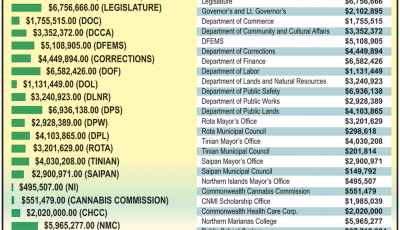CONSUMER CORNER
How to detect a lottery scam
You open the mail and—surprise!—you are the winner of the Foreign National Bank Lottery and need only wire a small $50 processing fee to a foreign bank to claim your $1-million jackpot. You think, this must be your lucky day: you didn’t even buy a lottery ticket, and now you’re going to be a millionaire—it’s simply too good to be true. You’re right, it is too good to be true. The described notice exhibits the telltale signs of fraud. Keep your hard-earned dollars and place the notice where it belongs: the trashcan.
Scammers are always on the prowl with schemes like these, but you can protect yourself from these tempting deceptions by recognizing a scam when you see one. Be on the lookout for the following signs of a scam:
• You never entered the lottery. One sure sign that it’s a scam: you never entered the lottery. If it were legitimate, you’d be familiar with it because you’d have taken an affirmative act to enter the lottery.
• Money upfront. If you need to pay some sort of fee or tax before receiving your so-called prize, you can be certain that it’s a scam. Do not send money. I repeat, do not send money—you’ll never receive the promised award.
• Wire payment. Be especially on guard for wire payments. Anyone who asks you to wire money is trying to avoid detection. Once you wire money, it’s pretty much impossible to get it back. As a general rule, never wire money to someone who you do not know.
• Bank information. Always be wary of any source asking for your bank information. If you’re required to provide your bank information before receiving some prize, you can be sure that it’s a scam. Don’t be tempted by the lure of money—never provide your bank account information to an unknown solicitor.
• Sounds too good to be true. If a deal sounds too good to be true, it’s almost certain that it is. Don’t fall for it.
Now that you know what to look out for, don’t be fooled. If you encounter a suspected scam or if you believe you’ve been a victim of such a scam, report them to the Attorney General (cnmiconsumercounsel@gmail.com) and the Federal Trade Commission (www.ftccomplaintassistant.gov).
The information contained in this article is for general informational purposes only and is not intended to provide legal advice to any individual or entity. This information is not intended to create, and the reading of it does not constitute, an attorney-client relationship.

























